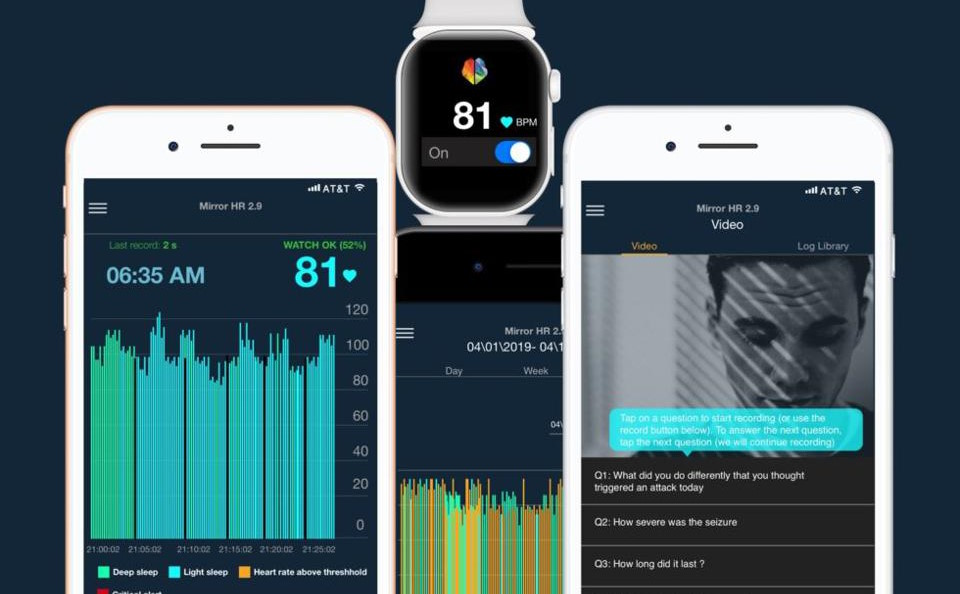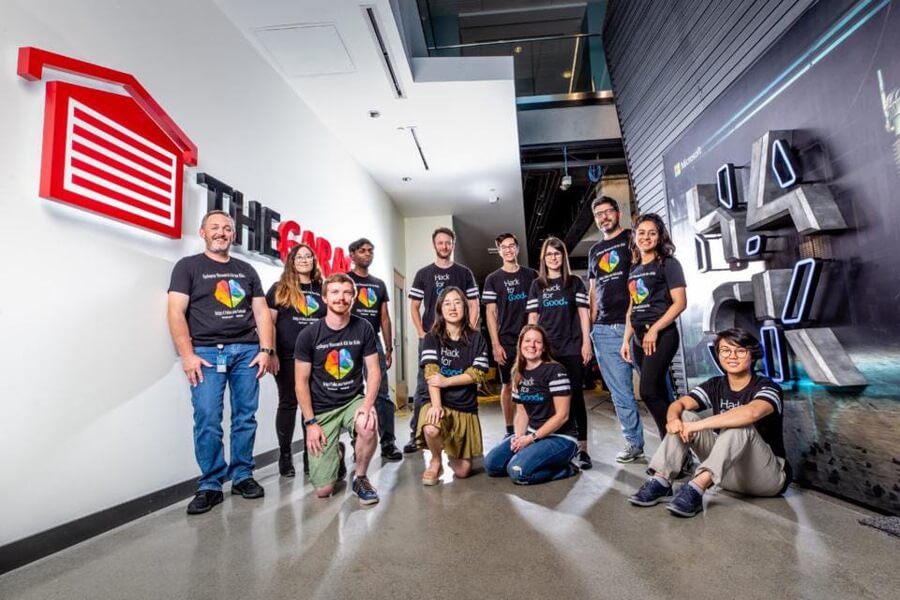MirrorHR – Epilepsy Research Kit
A community-led early warning system for parents of kids with epilepsy

"I have become a MirrorHR-addict: I fall asleep more calmly knowing I have a technological ally. Every night, I see the heart rate trend in real time and periodically download the data to correlate it to events, and understand if there are stressful things that worsen the picture."
About MirrorHR – Epilepsy Research Kit
Parents of children with epilepsy struggle with accessing data and often feel helpless in predicting seizures or ensuring their child receives care as soon as possible should one occur. To attack this problem head-on, Roberto D’Angelo, a Business Program Manager at Microsoft, and his wife, Francesca Fideli, founded the non-profit FightTheStroke.org to connect and share information with other parents with a need to monitor and quickly address seizures like those experienced by their son, Mario.
MirrorHR, originally conceived as a platform to support members of FightThe Stroke, was created during a Microsoft Global Hackathon and nurtured through a Garage Fellowship. To use the MirrorHR app, a child wears a device much like a smartwatch. The device monitors the child’s heart rate and alerts any caregivers through the app when certain heartbeat anomalies occur, while giving to parents full control of the system and the key data to intervene, like the length of the seizure, the possibility to record a video, track emergency medications or even call the doctor. Instead of monitoring a child’s breathing and other activities at night face-to-face – disrupting sleep and more – parents can monitor from another room, but still intervene more readily and effectively.
Key Features
MirrorHR is an app connected to a wearable device that uses artificial intelligence from Microsoft Azure to capture, process, and monitor data such as heart rate that can alert users to telltale signs of potential seizures. The app also monitors other biometric data, sending previously unavailable insights to parents and doctors.
In addition to nighttime monitoring through the app, self-care options like prescription logs and a video diary allow parents to easily record any potential triggers that could have increased the probability of a seizure, so that when reviewing the data with their doctor, the conversation can be data-driven, leading to a more meaningful conversation.
Video
Journey
In 2014, frustrated by sleepless nights due to their son Mario’s unpredictable epilepsy, Roberto and Francesca established FightTheStroke.
When they realized the quality of life for their son could be improved with support from an app, Roberto and Francesca conceived MirrorHR using Microsoft Azure.
The name MirrorHR was inspired by the mirroring relationship between a caregiver and a vulnerable patient. Their son was picking up on their sadness and stress, mirroring their emotions. They wanted him to instead see the best from them, their smiles and their willingness to fight for him, instead of their stress and depression.
As an employee, Roberto saw an opportunity to utilize the Microsoft Global Hackathon to make progress on the app. The Hackathon is an annual Microsoft event inviting employees to devote time to developing a new idea. Hackathon 2019 was Roberto and Francesca’s first opportunity to work on MirrorHR with a team of dedicated Microsoft hackers, and it resulted in the project winning Grand Prize and first-place in two additional categories around AI, Health, and Accessibility.
As the app developed, Roberto saw value in a residency – now known as a Garage Fellowship – with The Garage. Ed Essey, Director of Business Value, oversees the coaching of new products from conception to market. Essey worked with Roberto and the core of the project team on how to take MirrorHR to users and caregivers.
Regarding The Garage Fellowship: “The liftoff method … helped this small group of people from diverse backgrounds to quickly unite as a high-performing team. It fostered a strong connection among them based on their values, and the team always communicated openly about what mattered or what required improvement. They established a deep trust and psychological safety in each other, and they were stronger because of it.” says Essey.
Due to their success at Hackathon and growing interest from many families and doctors, the app was handed-off to the FightTheStroke Foundation that improved it further, thanks to their community, and finally made it available, completely free, in 2022. So far it has been downloaded from 36 countries across the globe, proving how big the demand is for this kind of technology and community-led approach where parents and doctors, having the deepest possible knowledge of the condition, design solutions for other parents and doctors in the same condition.
The team is still hard at work, currently looking for additional funding/sponsorship to develop it further and open it to other platforms.
Team

The 2019 Hackathon team Epilepsy Research Kit for Kids (aka MirrorHR) photographed at The Garage on the Microsoft campus in Redmond, WA.
Standing from left to right, Hackathon team members based in Redmond: Joel Gillespie, Maki Roggers, Mervin Johnsingh, Scott Kivitz, Robert Brais, Jessica Glago, Jacopo Mangiavacchi, Pritika Mehra. Kneeling/sitting from left to right: Scott Thompson, Rui Xia, Angie Maddox, Jun Taek Lee. Not pictured: Aditya Singh, Akansha Gawade, Alessandro Bigi, Aroma Mahendru, Devagnanam Jayaseelan, Elena Terenzi, Giuseppe Martinelli, Guenda Sciancalepore, Hervi Icban, Juan Sepulveda, Melike Ceylan, Michael Schmidt, Mikayla Jones, Neil Gat, Ricardo Wagner, Roberto D’Angelo, Spencer Morris. Credit: Photo by Scott Eklund/Red Box Pictures
